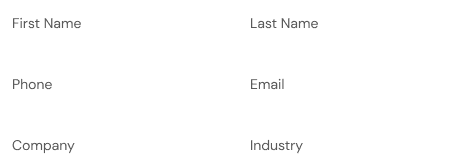
Essential Tips for Writing Remote Work Contracts in the Philippines
Companies looking for new employees tend to look for more than what meets the eye. While making sure to get top talents, they also want to make sure that their business interests are protected and taken care of. This is the purpose of having an employment contract for new hires. But without the proper guidance, you might end up having a poorly written employment contract which could lead to the agreement being null and void or worse, losses for the company in the long run. At the onset of each remote work employment, it’s best to ensure you and your new hire are protected with a mutually agreed upon, and binding contract.
So, whether you are a company willing to hire staff in the Philippines remotely, or a job seeker seeking secure and remote international employment, both parties need to understand the necessity of creating an employment contract.
What is a Remote Work Contract?
A remote work contract is a legal agreement between an employer and employee that states the working conditions for an employee. It sets out the terms and conditions under which the parties will undertake work for one another. It also entails how each party needs to fulfill its obligations for the at home jobs.
In most cases, employment contracts are in place to protect the employer from being sued for mistreatment or wrongful termination of employees. These agreements are also designed to protect employees from being fired unfairly.
However, with at home jobs, there is no physical office that an employee must go to every day. Remote workers are expected to complete their tasks in their own homes or a location they choose. Therefore, employers need to set up certain guidelines and rules that employees can adhere to while working remotely.

Essential Sections of a Remote Work Agreement
With the number of remote employees increasing every year, there are more people than ever working from home. Whether you work remotely yourself or have remote employees who do, having a formal remote work agreement can help protect your business.
By having your remote staff function like any other employee, you'll find it easier to manage their time, productivity, avoid misunderstandings, and document all their responsibilities, accomplishments, and milestones. Here are the main components of a basic remote work agreement and how to write each clause:
1. Work Arrangement on At Home Jobs
A work arrangement clause is often included in a remote employment contract. It specifies the hours of work and work schedule to be followed by the employee, as well as the requirements for reporting any changes in the employee's schedule. It also includes the key performance metrics that employees must reach regularly while they're working for their at home jobs.
2. Compensation and Benefits for Remote Employee
When hiring a new remote employee, it's important to indicate what they'll be getting out of the offer. Compensation refers to all the monetary benefits that will be provided to the employee in exchange for his/her services. This includes aspects such as salary, bonus, stock options, and other bonuses and incentives.
To have an idea about the basic salaries of Filipino remote workers, you can check out this blog.
Meanwhile, benefits refer to all other non-monetary benefits that will be provided to the remote employee such as health care, insurance, and others. In the Philippines, employers are required to pay a portion of their employees’ monthly or quarterly contributions in SSS, Pag-big, and Philhealth. For your additional reference. Here is a more detailed and comprehensive explanation of Philippine labor law.

3. Employer and Remote Employee Obligations
For employers, a remote work agreement clarifies what is expected from employees and sets boundaries so that the employer can ensure compliance with company policies. For example, if the employer requires using time trackers and screen monitoring software, then it must first be agreed upon by both parties. If employers decide to allow telecommuting, it is also important to set up a system where they can monitor hours worked by remote workers.
A remote work agreement also sets expectations for employees. It should be clear whether or not they are allowed to use certain apps during their working hours. This also includes other remote work policies that they should comply with.
4. Computer Equipment and Software
A lot of companies require workers to use business-class equipment for these services or reimburse existing equipment used for work purposes. Some businesses also require employees to pay for any upgrades or additional equipment associated with their job duties. In these cases, the contract must mention the type of expenses the employer is willing to shoulder or reimburse.
In addition, most remote work agreements cover software programs and other relevant tech tools and applications used for secure and efficient remote work.
5. Non-Disclosure Agreement (NDA)
Some employers include this as part of their employment contract but this can also be a separate agreement. In an NDA, the employee agrees that sensitive business information and ideas about the company will not be disclosed to other people outside the organization. This may include trade secrets, marketing strategies, manufacturing processes, or financial statuses.
6. Actions for Termination
Both parties should agree on what actions can result in termination, including whether firing an employee will be considered a breach of contract by the employer. The agreement should offer a clear understanding of the limitations of both parties within the employment

Create your contracts with our EOR service
Now that you know why work contracts are essential and what sections are needed in the agreement, with the proper knowledge and guidance on the matter, you can create a well-written contract that will protect you as the employer, and your employee as well.
Creating a contract on your own can be difficult, and the risk of not knowing what to put in it is high. It will always be best to take legal counsel, especially when in doubt. Do take note that no matter how well written your remote work contract is, the most important element you need to ensure is that the contract should be binding both in your country and your remote employee’s country of residence. This is where cross-border employment gets tricky and complicated for most as it deals with the Labor Laws concerning your employee.
We know that cross-border employment can both be rewarding but at the same time, complex. Remotify, with our EOR service can simplify everything for you. We can help you create a proper, and more importantly, legally binding remote employment contract that will be beneficial for you and your employees. Preparing a remote employment contract for you is part of our EOR service where we also handle payroll management and benefit allocation for your remote Filipino team.
To learn more about this, you can check out our website or contact us at hello@remotify.ph and we’ll be happy to assist you.
Jump straight to a key chapter
Spending Too
Much Time
Onboarding?
your remote hiring in the
Philippines, excellently.
Say Goodbye to High Costs!
Request Your Free Consultation Today andSave a Massive 70% on Your Workforce!

Ready to thrive in a remote-first work environment?


